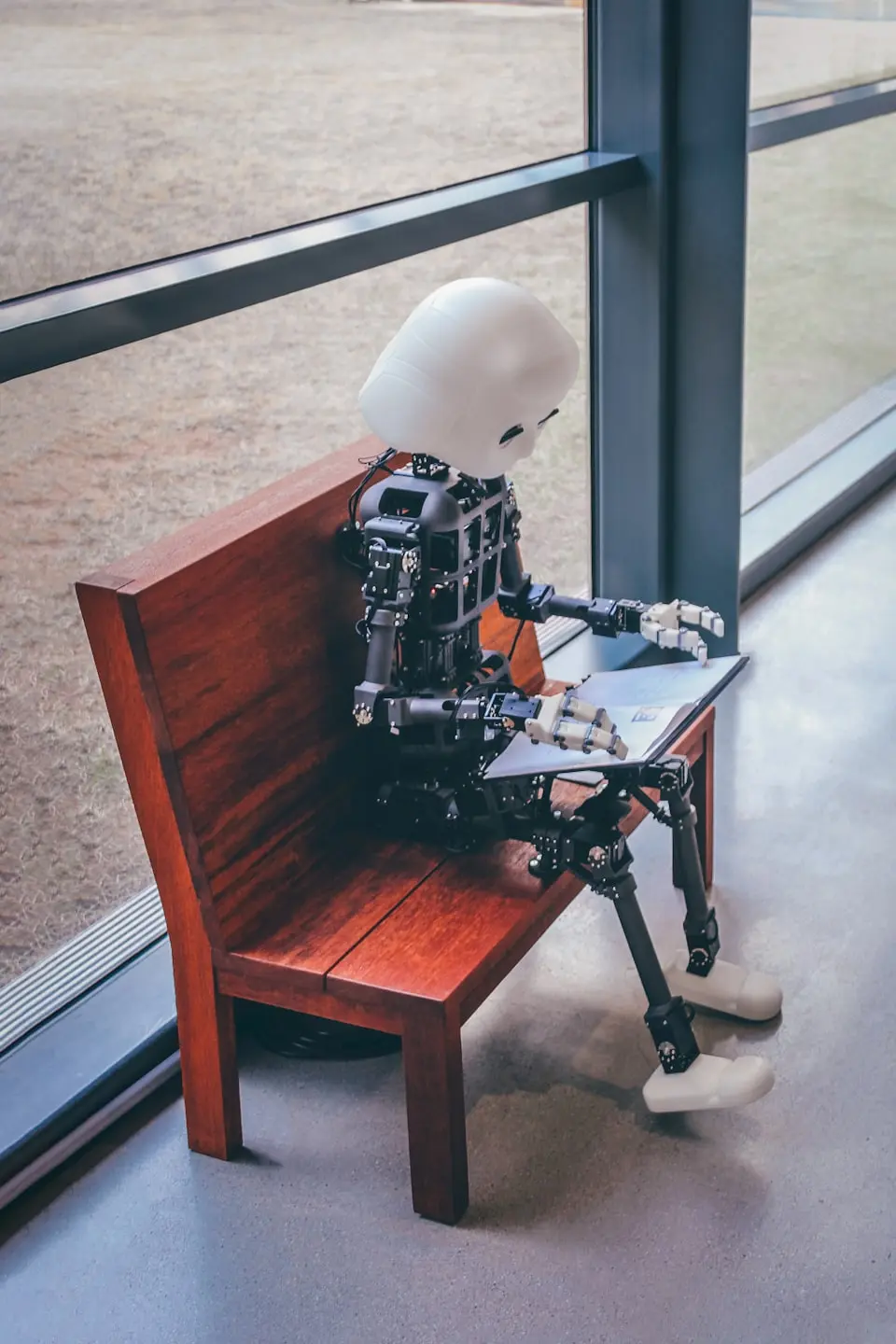"AI and the Future of Work: Preparing for the Next Industrial Revolution"
The rapid advancement of artificial intelligence (AI) is poised to transform the global job market and redefine the nature of work as we know it. With the potential to automate a vast array of tasks and enhance human capabilities

The rapid advancement of artificial intelligence (AI) is poised to transform the global job market and redefine the nature of work as we know it. With the potential to automate a vast array of tasks and enhance human capabilities, AI presents both opportunities and challenges for businesses, governments, and individuals. This article will explore the impact of AI on the future of work, the emerging skill sets required in the AI-driven economy, and the strategies that can be adopted to ensure a smooth and equitable transition.
The Impact of AI on the Job Market
AI's impact on the job market is multifaceted and complex. On one hand, AI can streamline processes, improve efficiency, and increase productivity, leading to economic growth and job creation. On the other hand, AI-driven automation has the potential to displace millions of jobs, particularly those involving routine and repetitive tasks.
Jobs in manufacturing, logistics, and customer service are among the most vulnerable to automation. However, AI is not limited to these sectors; advancements in natural language processing and machine learning algorithms have enabled AI to perform tasks in fields such as law, finance, and journalism.
While the prospect of job displacement may seem daunting, history has shown that technological revolutions often lead to the creation of new industries and job opportunities. AI is likely to follow this trend by generating demand for new roles in areas such as AI development, data analysis, and cybersecurity.
Emerging Skill Sets for the AI-Driven Economy
As the job market evolves, the skills required for success in the AI-driven economy will also change. The following skill sets are expected to be in high demand in the coming years:
- Technical skills: With the proliferation of AI technologies, there will be a growing need for professionals with expertise in AI development, machine learning, data science, and robotics. Familiarity with programming languages such as Python and proficiency in data analytics tools will be critical.
- Soft skills: As AI takes on more routine tasks, the importance of human-centric skills, such as creativity, empathy, and emotional intelligence, will rise. Workers who excel in communication, collaboration, and problem-solving will be well-positioned to thrive in the AI-driven economy.
- Digital literacy: In an increasingly digital world, basic digital literacy skills, such as navigating online platforms, using collaboration tools, and understanding data privacy, will be essential for all workers, regardless of their industry.
- Adaptability: The pace of technological change will require workers to be adaptable and embrace lifelong learning. The ability to acquire new skills, reskill, and upskill will be crucial to maintaining employability in the face of constant disruption.
Strategies for Preparing for the AI-Driven Future of Work
To ensure a smooth and equitable transition to the AI-driven future of work, the following strategies should be considered:
- Government policy and regulation: Governments play a crucial role in shaping the future of work. Policymakers should develop regulations that promote transparency, fairness, and accountability in AI systems while incentivizing businesses to create new jobs and invest in human capital. Social safety nets, such as universal basic income and portable benefits, should also be explored to protect workers in the face of job displacement.
- Education and workforce development: Preparing the workforce for the AI-driven economy requires a radical shift in education and workforce development strategies. Schools and universities should incorporate digital literacy, AI, and data science into their curricula to equip students with the necessary skills for the future job market. Governments and businesses should collaborate to create reskilling and upskilling programs, such as online courses, boot camps, and apprenticeships, to help workers transition into new roles.
- Inclusive AI development: AI technologies should be designed and developed with inclusivity and diversity in mind. Ensuring that AI systems are trained on diverse and unbiased data will help minimize algorithmic bias and create AI applications that are more equitable and beneficial for all. In addition, fostering diversity in the AI workforce, from developers to decision-makers, will help create technologies that address a wider range of societal needs and challenges.
- Public-private partnerships: Collaboration between governments, businesses, and civil society is essential to navigating the complex challenges posed by the AI-driven future of work. Public-private partnerships can facilitate the development of AI technologies that prioritize societal benefits, support reskilling and upskilling initiatives, and foster a culture of innovation and entrepreneurship.
- Ethical AI adoption: Businesses should prioritize the ethical adoption of AI technologies, considering the potential impact on workers, customers, and society as a whole. Developing ethical AI guidelines, conducting impact assessments, and implementing responsible AI governance frameworks can help businesses navigate the complex ethical landscape and ensure that AI is used as a force for good in the workplace.
The Role of Individuals in the AI-Driven Future of Work
Individuals also have a role to play in preparing for the AI-driven future of work. Embracing lifelong learning, cultivating adaptability, and developing a growth mindset will be crucial for success in the rapidly changing job market. Workers should actively seek out opportunities to reskill and upskill, leveraging resources such as online courses, workshops, and mentorship programs to stay ahead of the curve.
In addition, individuals should engage in discussions about the future of work and advocate for policies and initiatives that promote equity, inclusivity, and responsible AI development. By actively participating in shaping the AI-driven future of work, individuals can help ensure a more prosperous and equitable outcome for all.
Conclusion
The AI-driven future of work presents both opportunities and challenges, requiring a collective effort from governments, businesses, and individuals to navigate the transition successfully. By prioritizing education, workforce development, inclusivity, and ethical AI adoption, we can harness the power of AI to create new job opportunities, enhance human capabilities, and foster a more prosperous and equitable society.
As we move forward, it is essential to view the AI revolution not as a threat to our livelihoods, but as an opportunity to redefine the nature of work and create a better future for all. By embracing lifelong learning, cultivating adaptability, and fostering collaboration, we can ensure that the AI-driven future of work is one marked by innovation, progress, and shared prosperity.
Please visit and subscribe to https://www.abhineetarora.com for more articles like these.
